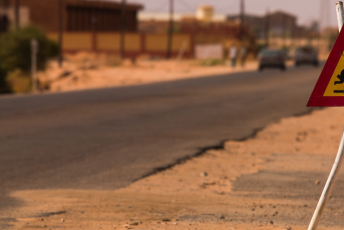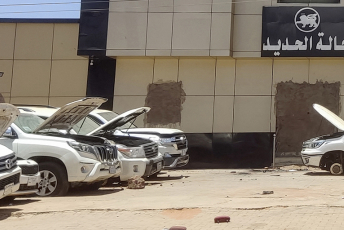Chloroquine, a drug that some say may treat COVID-19, is in high demand in the Senegalese capital Dakar. The drug was previously used under its trade name Nivaquine to prevent and cure malaria in Africa. But since reports by prominent French microbiologist Didier Raoult and Chinese scientists that chloroquine may be effective in treating the coronavirus, it is highly sought after.
Soon after Professor Moussa Seydi, head of the infectious diseases department of Fann University Hospital, Dakar, validated its use, Senegal’s government requisitioned all available chloroquine from private laboratories in order to prevent a chloroquine rush.
Criminal networks have cashed in on the population’s eagerness to acquire the drug. They’ve developed a parallel economy by trafficking and selling a substandard version of chloroquine. Despite the requisition and the shutdown of air and land borders, these criminal networks have found ways to continue smuggling and feeding the black market with the drug.
Criminal networks benefit from the trade exchange between Senegal and Guinea because trucks carrying goods are exempt from travel restrictions. Counterfeit chloroquine is smuggled into Senegal by truck drivers carrying fruit from Guinea.
According to a customs official who spoke to ENACT on condition of anonymity, ‘this axis is chosen by criminals because of the absence of a scanner at the police border, unlike the border with Mali, where all trucks carrying goods are systematically checked by a scanner’.
While there are no official records of how many people are using the fake chloroquine, it’s reported that the number of people buying it on the black market has increased dramatically in the past months. Nirupquin, a counterfeit form of chloroquine made in Mumbai, India, and which appears on the list of falsified chloroquine products on the World Health Organization (WHO) website, is also available.
According to a broker interviewed by ENACT, both rich and poor purchase the medicine. Some clients are not aware that the medicine they’re buying is fake. Brokers tell them the medicine is of good quality.
The chloroquine rush has led to a sharp rise in its price on the black market. Before the COVID-19 outbreak, a Nirupquin tablet sold for 250 CFA ($0.40). Now it costs 1 500 CFA ($2.40). A box of 100 pills which sold for 6 000 CFA ($10) currently costs around 20 000 CFA ($33) on the black market, the source told ENACT.
Many people buy the drug believing it may prevent the coronavirus, and to treat themselves at home, as many COVID-19 patients refuse to go to hospital due to the stigma attached to the disease, says Seydi.
Either way it has life-threatening side-effects for users. Fake medicines not only cause cardiovascular diseases and chronic renal failure, but can also ‘cause resistance for tackling diseases like malaria’, says the WHO. And unless the government takes urgent action against the illicit sale of fake chloroquine, self-medication could lead to serious public health issues.
Over the past five years, Senegal has intensified its fight against fake medicines. In 2014 it put in place an inter-departmental committee on the fight against fake medicines comprising several entities including the ministries of health and commerce, the police and customs agencies.
In February 2020, the Groupement Polyvalent de Recherche et de Répression de la Fraude, a customs unit for combating fraud, made two major seizures of fake medicine. The first was valued at around CFA100 million ($169,310) and the second at CFA 2,5 million ($38,094).
In January 2020, the Senegalese government signed the Lomé Initiative, an intercontinental agreement for the criminalisation and cooperation against the trafficking of counterfeit drugs. According to Health Minister Abdoulaye Diouf Sarr, Senegal is in the process of ratifying the Medicrime Convention. The Senegalese College of Pharmacists and civil society organisations should seize the opportunity brought about by a global health emergency to advocate for its immediate adoption and application.
In addition to raising awareness about social distancing and wearing masks, Senegal’s authorities should sensitise the public on the dangers of self-medication and the use of fake medicines. Senegal must also develop an effective pharmaceutical supply chain track and trace system in order to break the cycle of counterfeit medicines trafficking.
Mouhamadou Kane, Research Consultant, ENACT project, ISS







